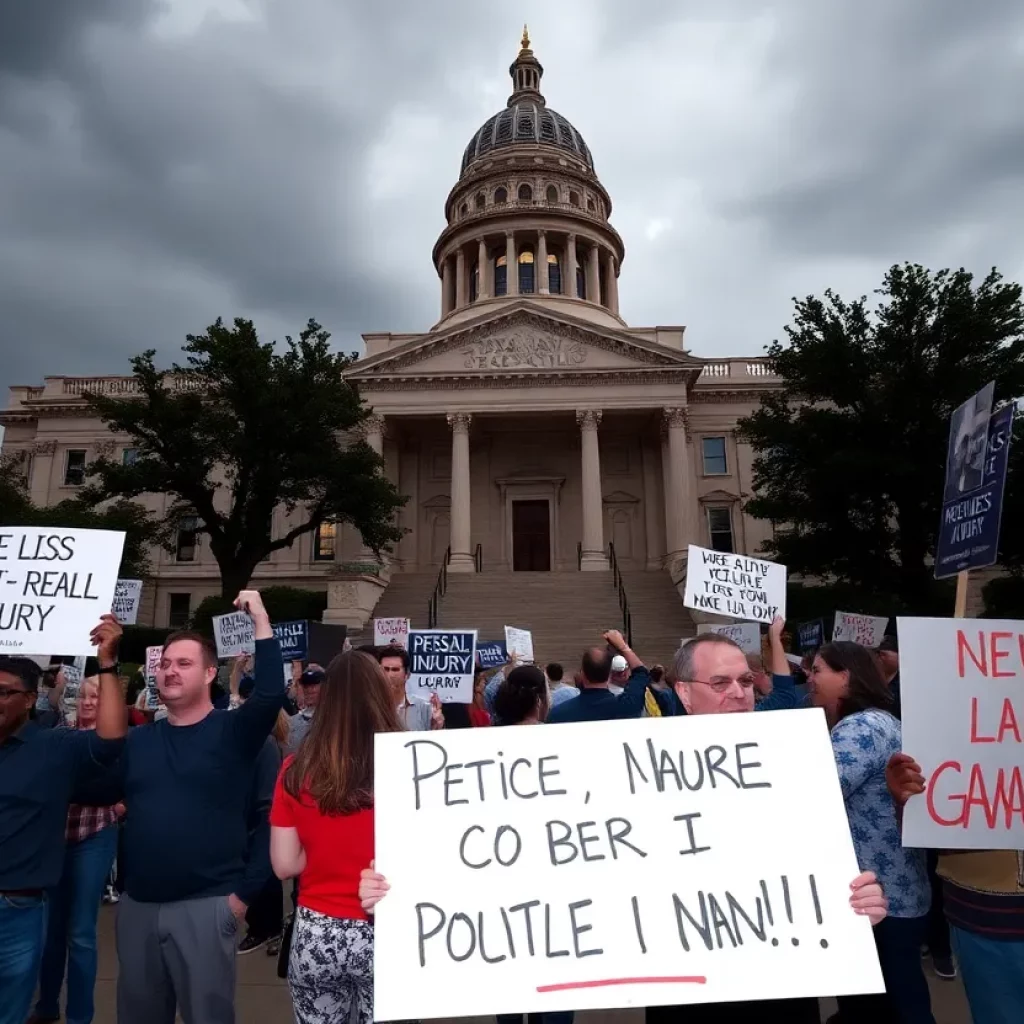News Summary
The Texas personal injury lawsuit reform bill, aimed at limiting damages awarded to accident victims, has failed to pass in the state legislature. This defeat is considered a significant win for the Texas Trial Lawyers Association and a setback for businesses advocating for tort reform. The bill’s opposition highlighted concerns over access to justice and the potential for reduced accountability for businesses. As scrutiny increases on the economic impacts of such reforms, advocates continue to push for future changes amidst a contentious legal landscape.
Texas Personal Injury Lawsuit Reform Bill Fails in Legislative Session
In a notable setback for advocates of tort reform, a legislation in Texas has failed to advance, marking a significant defeat for efforts aimed at curbing the personal injury lawsuit industry. The bill came up short as lawmakers were unable to agree on a final version before the looming deadline.
Aims of the Legislation
Initially designed to impose substantial limits on personal injury claims, the bill was authored by Republican State Senator Charles Schwertner. It was intended to establish new guidelines on damages accident victims could claim, further tying jury awards to set thresholds, such as 150% of Medicare payments. One of the core principles behind the bill was the idea of “curbing nuclear verdicts”—those infamous judgments exceeding $10 million.
The proposed reforms were a reaction to concerns from numerous business owners who testified that the prevalence of personal injury lawsuits contributes to rising operational costs in Texas. Advocates, including notable lobbying groups, claimed these lawsuits have become a financial burden on businesses and individuals alike.
The Reduced Bill’s Parameters
As the legislative process unfolded, the bill was significantly pared down, limiting its stipulations to requiring the disclosure of referrals between attorneys and healthcare providers and expanding the types of evidence available for estimating damages. However, changes made by the House—such as granting juries greater leeway to determine relevant evidence—sparked controversy and ultimately created an impasse in the legislative body.
Opposition and Criticism
The failure of the bill is seen as a noteworthy win for the Texas Trial Lawyers Association, which actively opposed the measures. Critics of the bill argued that its provisions would undermine the fundamental principles of the civil justice system and allow businesses to escape accountability. There was also pointed criticism regarding the claim of widespread fraud allegedly involving personal injury attorneys and medical practitioners manipulating billing practices.
Some lawmakers voiced concerns that the legislation was flawed and misaligned with the necessities of the average Texan. Previous supporters within the conservative base expressed strong objections, raising alarms about the potential repercussions for access to justice.
Current Legal and Economic Climate
The overall economic climate in Texas is facing increased scrutiny as tort reform legislation gains attention nationwide. Reports reveal that Texas has led the nation between 2009 and 2023 in what are termed “nuclear verdicts,” totaling an alarming $45 billion across 207 separate judgments. The public has felt the sting of these legal challenges in what has been labeled a “tort tax”, estimated at approximately $1,725 per Texan annually due to litigation-related costs.
Looking Toward the Future
Despite this setback, coalition efforts are still underway. An economic alliance by Texans for Lawsuit Reform is focusing on reforms concerning massive jury awards resulting from trucking accidents. Meanwhile, House Bill 2988, which sought to alter the Texas Citizens Participation Act—designed to protect against strategic lawsuits against public participation (SLAPP)—was tabled and will not proceed in the current session.
As the legislative session concludes, Texas lawmakers will reflect on the implications of this failed reform for the state’s legal landscape and economic health. The dynamic between business interests and the civil justice system appears more contentious than ever, fueling an ongoing national discussion about tort reform and the appropriate balance between accountability and legal access.
Deeper Dive: News & Info About This Topic
HERE Resources
Louisiana Lawyers Address Rising Auto Insurance Crisis
Developments in Houston’s Legal Community: Young Lawyers Shine
Tom Anderson Recognized as Leading Lawyer in Pennsylvania
Massachusetts Lawyers Prepare for Work Stoppage Over Pay Issues
Injured Teacher Secures $402,500 Settlement with Lawyer’s Help
California GOP Chairwoman Discusses Immigration Policies
New Law Firm Aims to Transform Personal Injury Sector
Charleston Lawyer Arrested for Disorderly Conduct
Human Rights Lawyer Arrested in El Salvador Sparks Outrage
Local Attorney Arrested for Disorderly Conduct in Charleston
Additional Resources
- Georgia Senate Bill 68
- South Carolina Senate Bill S. 244
- Texas Senate Bill 30
- Texas Senate Bill 39
- Texas Tribune
- Wikipedia: Tort Reform
Author: STAFF HERE CHARLESTON
The CHARLESTON STAFF WRITER represents the experienced team at HEREcharleston.com, your go-to source for actionable local news and information in Charleston, Charleston County, and beyond. Specializing in "news you can use," we cover essential topics like product reviews for personal and business needs, local business directories, politics, real estate trends, neighborhood insights, and state news affecting the area—with deep expertise drawn from years of dedicated reporting and strong community input, including local press releases and business updates. We deliver top reporting on high-value events such as the Spoleto Festival USA, Charleston Wine + Food Festival, and the MOJA Festival. Our coverage extends to key organizations like the Charleston Metro Chamber of Commerce and the Charleston Museum, plus leading businesses in tourism and maritime industries that power the local economy such as South Carolina Ports Authority and the Charleston Visitor Center. As part of the broader HERE network, including HEREaiken.com, HEREbeaufort.com, HEREchapin.com, HEREcharleston.com, HEREclinton.com, HEREcolumbia.com, HEREgeorgetown.com, HEREgreenwood.com, HEREgreenville.com, HEREhiltonhead.com, HEREirmo.com, HEREmyrtlebeach.com, HEREnewberry.com, HERErockhill.com, HEREspartanburg.com, HEREaustin.com, HEREcollegestation.com, HEREdallas.com, HEREhouston.com, and HEREsanantonio.com, we provide comprehensive, credible insights into South Carolina's dynamic landscape.










